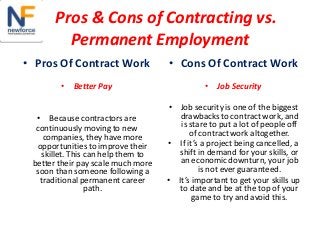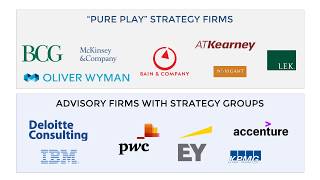
As a consultant analyst, you can perform a variety of tasks, such as analyzing data, making recommendations and presenting results and conclusions. You'll also manage analysts who work on different projects, develop sector-specific knowledge, and develop core consultancy skills. There are many benefits to this job, regardless of your educational background. Continue reading for more information. These are the main benefits:
Titles Interim
Consulting job titles are relatively simple and have stayed the same for decades, but many organizations award interim titles to their consultants and analysts. These titles can be either official or informal, but they help to visualize the career path of consultants. Interim titles are typically offered near the beginning or senior end of a consultant's career ladder. Here's a look at the way interim titles are awarded. What does an interim title refer to?
As the analyst's experience and expertise grows, he or she may move into a more senior position. At some firms, an analyst is an A1 or an A2, while at other companies they are known as an A2 or an A3. As they progress in their careers, some consultants may have interim titles. Some analysts assume more responsibility as they get older. Other titles may include Business Analysts, Project Managers, Functional Analysts, IT Leads, and even a CIO.

Salary
The salary of a consultant analyst can range widely, but generally falls within the range of $50,000 to $90,000 per year. Apart from the preparation of reports and other documents, consulting analysts can also suggest services to other consulting firms, such project management, training, or other services. These suggested services may result in increased revenue for the consulting firm and deeper relationships with clients. PayScale estimates that the 2020 median salary for an advisor analyst will be $71,024 Expect to earn between $51,000 and $84,000. However, salaries reported in the past have reached the $100K mark.
A variety of factors influence the salary of a consulting analyst. These include experience, location, and other factors. A consultant analyst with experience is more paid than a recent graduate. The location is also important as more lucrative salaries are often associated to larger metropolitan areas. In addition, a consultant analyst salary is usually correlated with the cost of living in the area. Consider an MBA if your goal is to find a job that pays well in Brooklyn.
Work environment
Consultant analysts typically work in an office environment. However, some positions may require traveling. Most consultant analysts work in an office. Although the job requires a lot of work, many find it challenging and rewarding. Most consultants work between 40- 50 hours per week. Some positions require more travel. This field requires strong communication and math skills as well as a solid background in statistics, mathematics, or both.
Although the work environment for a consultant analyst is often similar to that of an accountant, many analysts begin their careers with several years of experience in a different field. It is not easy to get a job as a consultant. Many organizations try to hire candidates with more relevant work experience before they hire them. Common candidates for consultant analyst jobs include market researchers, accountants, and computer systems analysts. Once hired, analysts work in a variety of settings and are required to take the lead in implementing business-oriented initiatives.

Education is required
While a postgraduate business degree or related subject is not necessary for becoming a consultant analyst. A Masters degree could be useful. These courses are often available online. Employers will also consider candidates with relevant work experience. Many consultants have some experience in technical or business management, which will help them land their first position. Numerous large consulting firms will take recent college graduates on trainee programs.
Management analysts usually have a master's in addition to a bachelors degree. Many firms prefer to hire candidates with a graduate degree in management. As the consultant grows in experience, he or her will assume more responsibility. Some will manage large teams and others will help bring in new business. Many senior consultants go on to manage non-consulting firms. A MBA is desirable because it allows you to manage other firms.
FAQ
Do I really need legal advice?
Yes! Consultants often create contracts with clients without getting legal advice. However, this can lead to problems down the road. For example, what happens to the contract if the client terminates it before the consultant has completed? Or, what happens if the consultant doesn't meet the deadlines set forth in the contract?
Avoid potential legal problems by consulting a lawyer.
How do I attract clients to my consultancy business
Finding a passion area is the first step. It could be anything from social media to public relations, but there must be something you feel strongly about. If not, you may have to start small by finding a niche market such as web design. Once you have discovered the niche, understand what it does. What problems does it solve? Why should people use this? How can you help them?
You can also contact businesses directly.
You can also offer your services at events such as networking nights and conferences, if all else fails. You'll meet many potential customers without spending money on advertising, and you'll be able to show off your skills.
How much should a consultant charge?
It depends on what you are offering. It doesn't matter if you offer services at no cost. If you're selling products or services however, prices should be determined based on their value.
If you are providing low-quality services, then you don't have anything to sell. You are not worth anything, so why should anyone pay you anything.
You may be able to ask for a higher price if you offer high-quality services. This is because people know the value that you provide. Clients who purchase multiple packages may be eligible for discounts.
Is consulting a real job?
Consulting is more than a job that allows you to quickly make money.
Consulting can offer many career opportunities, such as project management and business development. It is possible to work on projects that range from small start ups to large, international corporations.
You can develop your skills and gain experience in a variety of industries by consulting. This could mean learning to manage teams, negotiate contracts, write proposals, manage budgets, analyze data, create presentations, conduct market research, and much more!
Statistics
- WHY choose me: Why your ideal client should choose you (ex: 10 years of experience and 6-week program has helped over 20 clients boost their sales by an average of 33% in 6 months). (consultingsuccess.com)
- "From there, I told them my rates were going up 25%, this is the new hourly rate, and every single one of them said 'done, fine.' (nerdwallet.com)
- My 10 years of experience and 6-step program have helped over 20 clients boost their sales by an average of 33% in 6 months. (consultingsuccess.com)
- Over 50% of consultants get their first consulting client through a referral from their network. (consultingsuccess.com)
- 67% of consultants start their consulting businesses after quitting their jobs, while 33% start while they're still at their jobs. (consultingsuccess.com)
External Links
How To
What Does A Typical Day For A Consultant Look Like?
A typical day will vary depending on the type of work you are undertaking. But, in general, you will spend your time researching, planning and meeting new clients.
You will have many meetings where clients and you can discuss their issues. These meetings may be over the phone via email, on-line, or face-to–face.
The proposal is a document that outlines your ideas and plans to clients. You will need to discuss these proposals with a mentor or colleague before you present them to clients.
You will need to create content after all your planning and preparation. Writing articles, designing websites, editing photos or conducting interviews are just some of the options.
Based on the scope and complexity of the project you may need research to obtain relevant statistics. This could include finding out how many customers your company has and whether they purchase more than one product.
Once you have collected enough information, it's now time to present the findings to your clients. You can either present your findings in writing or orally.
Finally, you must follow up with clients after the initial consultation. You might contact them regularly to check on their progress or send them emails to confirm they have received your proposal.
Although it takes time, this process is worth it. It's also important to keep your eyes on the prize and maintain good relations with clients.